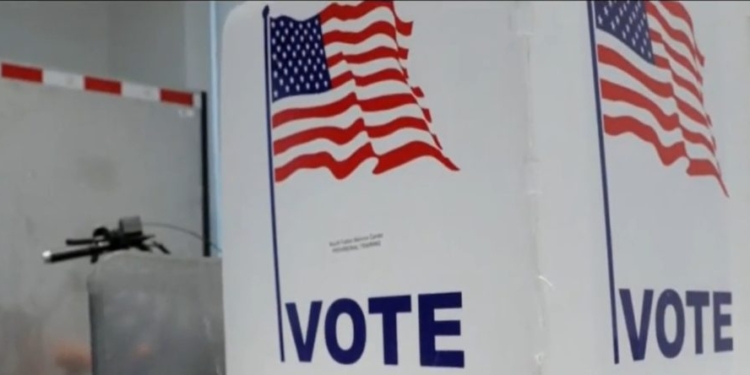Ranked-choice voting (RCV) is a convoluted election system that can disenfranchise voters and confuse election outcomes. Dozens of towns and cities have tried and rejected it, and ten states ban it. Yet thanks to a few left-leaning billionaires, there are ballot measures pushing RCV in seven states this November.
Elections are fundamentally different with RCV. Instead of voting for one candidate, RCV has voters rank some or all of the candidates for each office. Ballot data is fed into a computer where RCV software counts first-place rankings and, if no candidate has a majority, eliminates the least popular candidate. If that candidate’s voters ranked someone second, then those rankings are “moved up” to first-place for the next count.
The process repeats until it creates the mirage of a majority. This can mean “adjusting” voters’ third- or fourth-choices to be counted as a first choice. And it always means eliminating some voters altogether.
RCV guarantees a “majority winner” only by disenfranchising voters who don’t rank all candidates. If those voters’ choices are eliminated, they’re not just counted as voting for a loser. They’re removed entirely, as if they never showed up, so RCV can pretend that the winner has majority support.
Some RCV ballot measures are also combined with California-style primaries, where parties have no control over which candidates represent them in the general election. Ballot measures in Colorado and Idaho propose a top-four primary with an RCV general election. In Nevada, it’s a top-five primary and RCV. Measures in Oregon and DC only add RCV.
In a humorous twist, Oregon legislators put RCV on the ballot there — but excluded themselves — something The Oregonian called out in its editorial against the measure.
Even more cynical are proposals in Arizona and Montana. which are designed to force RCV on the states indirectly.
Arizona’s measure requires a California-style primary but leaves it to the legislature to figure out how many candidates go to the general election. If the number is more than two, it would require RCV. The closely-divided legislature is expected to deadlock, throwing the power to the Secretary of State, a Democrat, who could unilaterally enact RCV.
Montana is even more complicated, with two state constitutional amendments on the ballot. The first requires a top-four primary. The second requires a majority winner. In other words, one would break the state’s election system while the other forces the legislature to fix it by adopting RCV’s phony “majority winner” scheme.
Montana has only about 750,000 registered voters, yet the RCV campaign has raised almost $5 million. The cash haul comes mostly from billionaires in Texas and New York.
More than half is two dark money groups, Article IV and Action Now. Both are connected to former Enron trader John Arnold, who lives in Austin, Texas, and is a major funder of pro-abortion groups and the Southern Poverty Law Center. Other funding comes from New York’s Kathryn Murdoch by way of Unite America, a group founded by Democrats to give their activism the veneer of bipartisanship. Not to be left out is the Sixteen Thirty Fund, which Politico calls a “liberal ‘dark-money’ behemoth.”
The story is similar in most of these states: left-leaning, out-of-state donors fuel RCV campaigns with little evidence of local interest.
The same story played out in Alaska in 2020. A ballot measure that was pushed as a way to stop political dark money turned out to include RCV — and was funded almost entirely by dark money. This year, in a case of buyers’ remorse, Alaskans have put a measure on the ballot to repeal RCV.
Ranked-choice voting makes the entire election process more complicated and less transparent. That is why so many places that have tried RCV have gotten rid of it — something Alaska voters are poised to do this year. Yet the onslaught continues, thanks to just a few billionaires who would make our elections worse.
Trent England is founder and executive director of Save Our States and co-chairman of the Stop RCV Coalition.
The views and opinions expressed in this commentary are those of the author and do not reflect the official position of the Daily Caller News Foundation.
(Featured Image Media Credit: Screen Capture/PBS NewsHour)
All content created by the Daily Caller News Foundation, an independent and nonpartisan newswire service, is available without charge to any legitimate news publisher that can provide a large audience. All republished articles must include our logo, our reporter’s byline and their DCNF affiliation. For any questions about our guidelines or partnering with us, please contact [email protected].


























